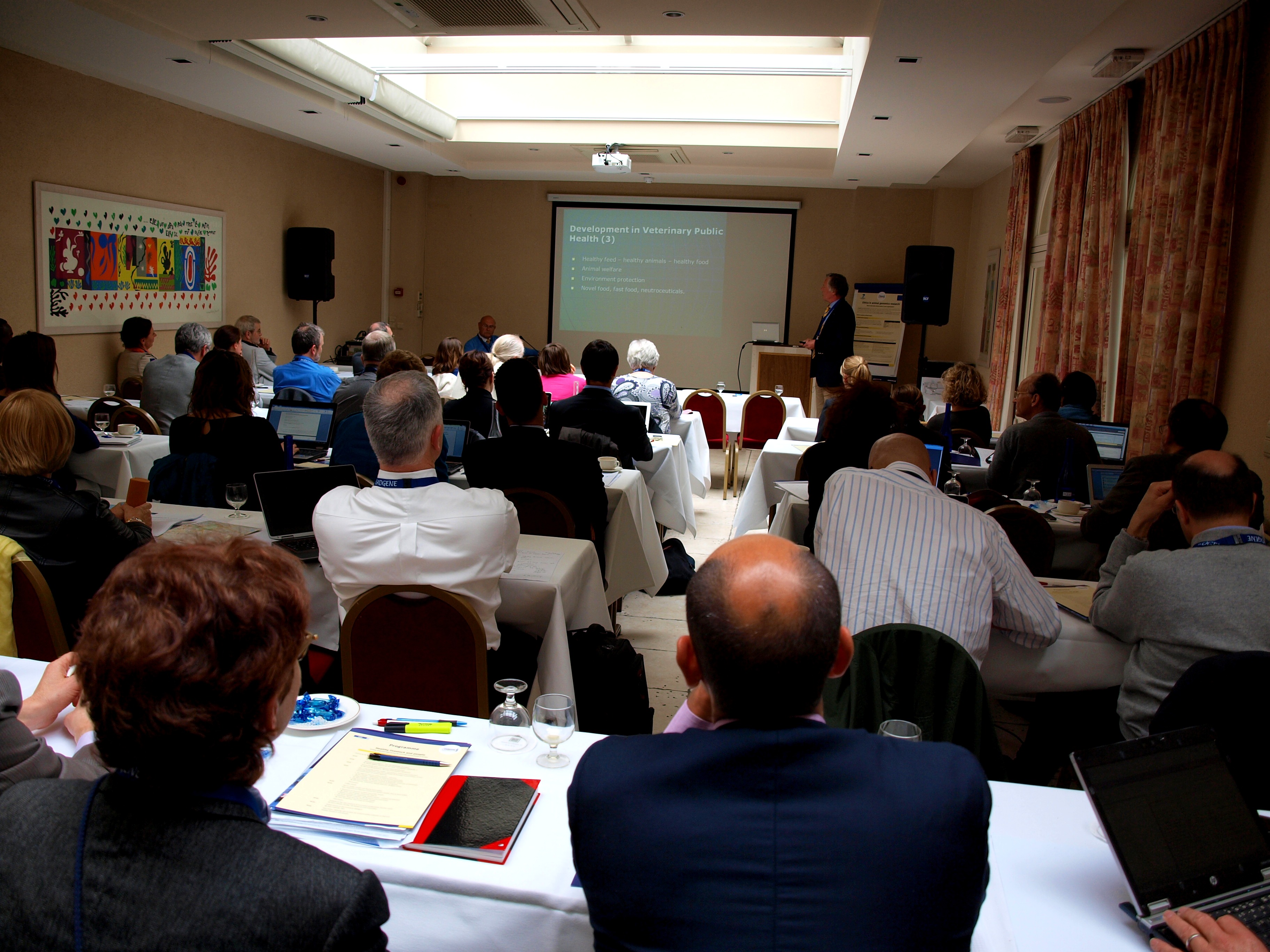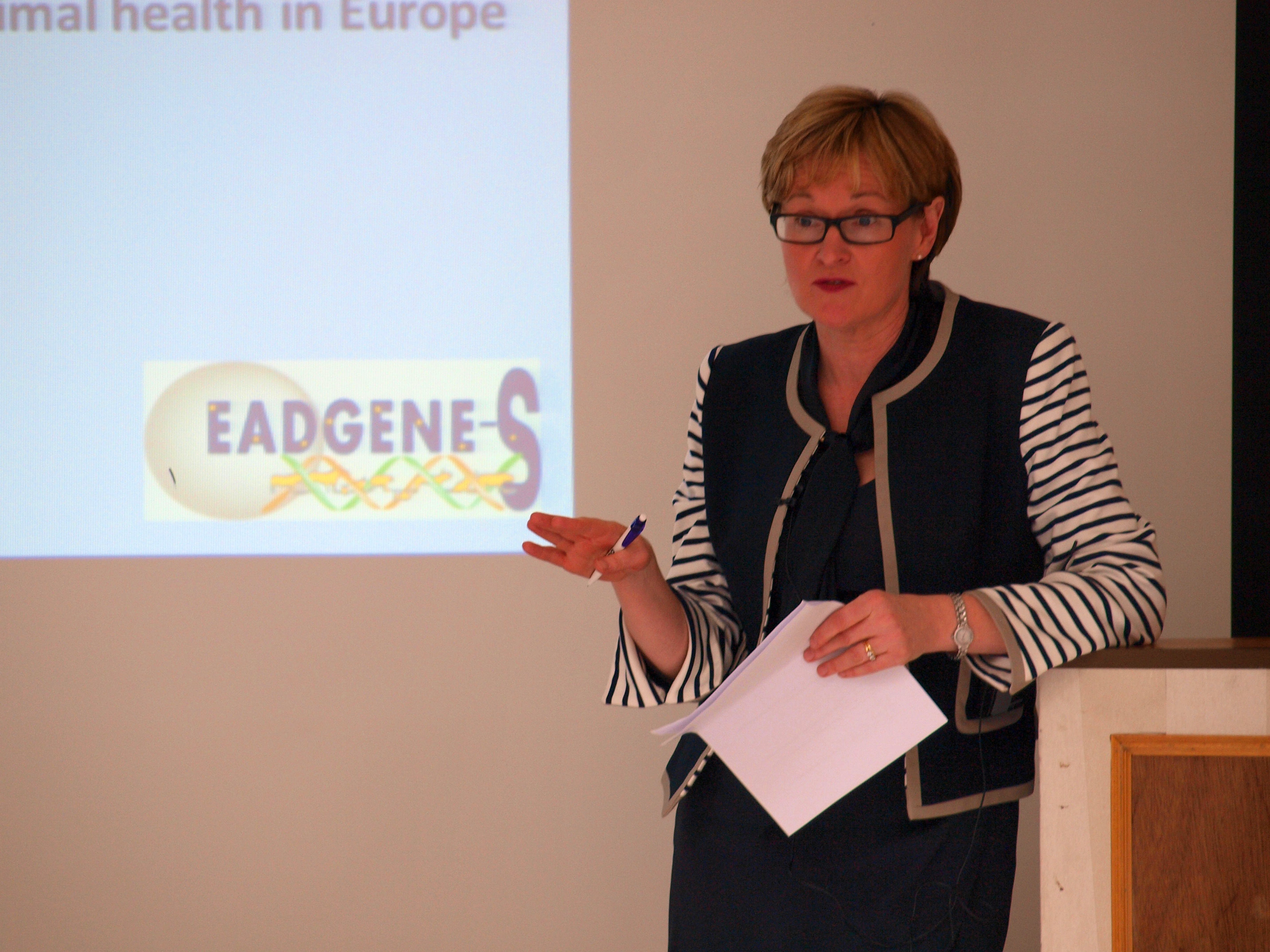Further improving animal health will remain an important issue for ensuring a sustainable livestock sector in Europe. Integrated and innovative approaches are needed to realise improved animal health. This is the main conclusion of the seminar ‘Healthy Livestock & People’ that was organised yesterday in Brussels.

New integrated approaches, multi-disciplinarity and better communication are key in improving animal and human health in Europe. Besides the traditional approaches, there are many other opportunities to improve animal health. Animal health genomics is such an integrated approach that combines genomics, breeding and health to find new solutions for increasing resistance to diseases.
Professor Steve Bisshop said that genomics will play a key role in future animal health approaches by defining new problems, providing solutions for new diseases and by assisting in the control of ongoing disease problems. He presented three cases that show the benefits of breeding for increased resistance: IPN in Salmon, Bovine Tuberculoses in cattle and PRRS in pigs. The EADGENE_S project has played an important role in bringing together researchers and industry to work on these issues.
Member of European Parliament, Mrs. Mairead McGuinness, also stressed during the seminar the importance for

integrating other aspects that influenceanimal health: ‘Animal health is also about good nutrition and good husbandry (...) there should be more debate about these issues to improve animal health.’ In addition, Mrs. McGuinness firmly stressed the need of politicians for clear and understandable information in order to make choices based on knowledge rather than opinions. She made an appeal to researchers and those interested in animal health to ‘make your views clear early and frequently to policy-makers and politicians.’
Other contributions came from industry (Bill Stanley – Aviagen, Nancy de Bryine – Federation of Veterinarians
of Europe), science (Frans van Knapen – University of Utrecht, Marie-Helene Pinard-van der Laan – INRA), policy (Anne-Sophie Lequarre & Jean-Charles Cavitte - DG Research and Innovation), and the FAO (Juan Lubroth).
The seminar brought together around 60 experts from industry, science and policy to discuss the future approaches needed to ensure animal health in Europe. The seminar was organised by the EADGENE_S project (a project under the EU 7th framework programme) and the Animal Task Force. Healthy livestock and people is one of the core themes that the ATF promotes to receive support under the next research and framework programme Horizon2020.
The report of the seminar can be downloaded
here.